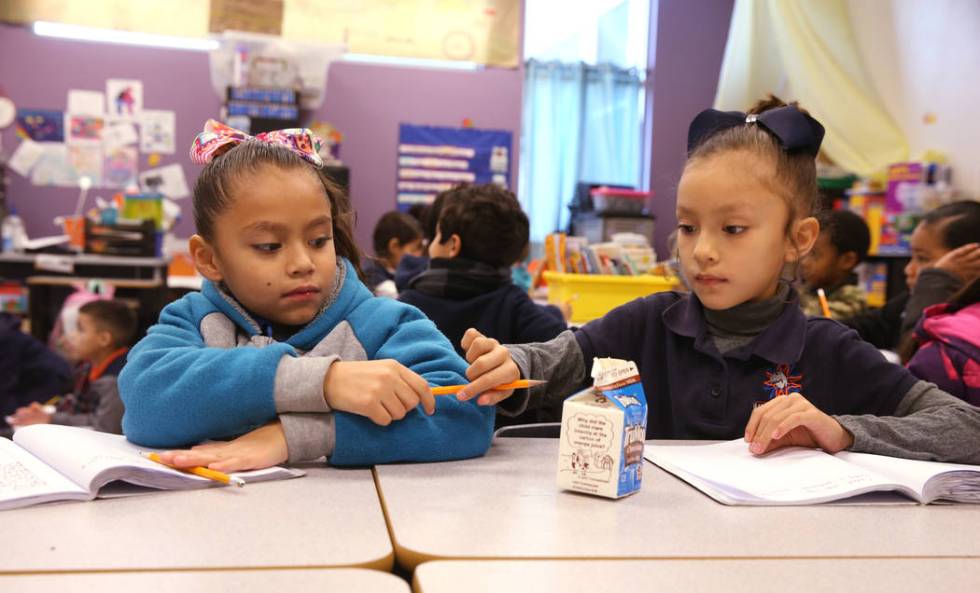COMMENTARY: Nevada’s neediest families deserve school choice

If you have a child enrolled in the Clark County School District, you are likely used to uncertainty with inevitable budget deficits, teacher shortages, burgeoning classroom sizes, and the blame game between the district, teachers unions and politicians. The threat of an illegal strike loomed until last week and we still do not know the details of the agreement.
Candidate Steve Sisolak promised that if he was elected he would fund education and address our low national rankings. State Legislators promised to make education a top priority. Despite their promises, the session closed in June with few solutions to these complex problems. Gov. Sisolak did not deliver on his promises.
Many argue that the root of the district’s problems is the lack of funding. Voters, however, have approved increased funding and are paying higher taxes for public education. In 2015, Gov. Brian Sandoval supported the largest tax increase in Nevada history, which was supposed to solve the budget crisis. In 2017, the school district announced an astonishing $60 million shortfall resulting in an increase in class sizes. In 2016, voters approved Ballot Question 2 legalizing recreational marijuana. Question 2 was sold to voters as a windfall for education. Recreational marijuana is legal, yet district coffers are strapped. In spite of increased funding over the last several years, serious problems persist.
Parents are fed up. Our kids are in the middle of this debacle and they are paying an enormous price. Parents are tired of waiting for the chronic problems to be fixed and are motivated to explore other educational opportunities. Unfortunately, there are not enough good options for families looking for alternatives. Some have taken advantage of charter schools or Opportunity Scholarships. Home-schooling is becoming more popular too.
Despite the demand for educational options, school choice remains controversial. School choice is when government provides parents the financial ability to select an alternative to traditional public schools. The counter argument for school choice is that it takes needed funds away from public education and we should invest all of our resources there. Despite increased funding, however, there is little to show for it. Uncertainty and dysfunction persist. Our low national ranking has not budged.
There are thousands of students on charter school waiting lists, but the 2019 legislative session was hostile to school choice. Some lawmakers tried to place a moratorium on new charter schools. Legislators limited funds to the Opportunity Scholarship program, which helps low-income families send their children to private school. Many families lost their scholarship or received a reduced amount.
As a result, families previously receiving Opportunity Scholarships had to scramble to find a way to keep their kids enrolled in their preferred school. Students suffer from lack of continuity as they are forced to change schools and their educational opportunities shrink.
Consider Success Academy Charter Schools in New York City. It is achieving notable academic results for low-income, minority children who would otherwise be stuck in low-performing schools. Robert Pondiscio, senior fellow at the Thomas B. Fordham Foundation, who spent a year at one of it schools, asked “why low-income families of color should not have the ability to send their children to a school with the children of other parents who are equally engaged, committed, or ambitious.” He thinks they should.
If our elected officials really cared about improving education in Nevada, they would champion school choice instead of propping up a dysfunctional system.
School choice breathes opportunity into communities where the public school option fails by injecting competition and challenging the status quo. Our laws should expand the freedom to choose our child’s educational experience. The option to choose which school is best suited to a student’s needs is a panacea for poverty and increases educational opportunities for all Nevada students.
Deborah Earl is vice president of Power2Parent.